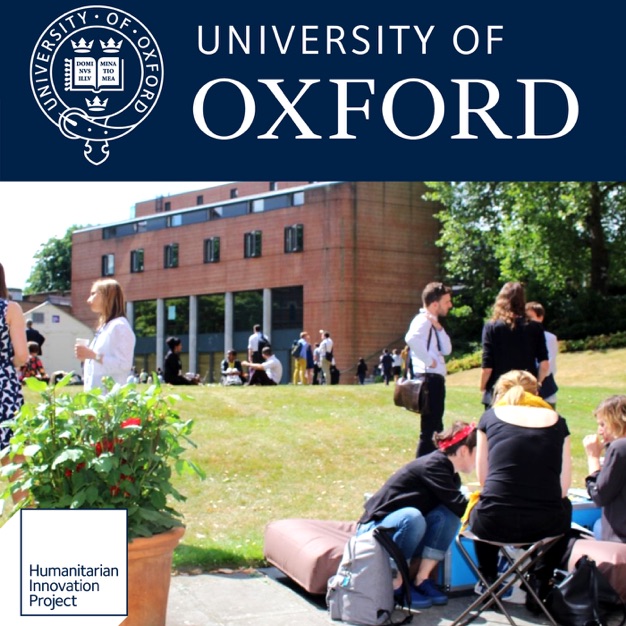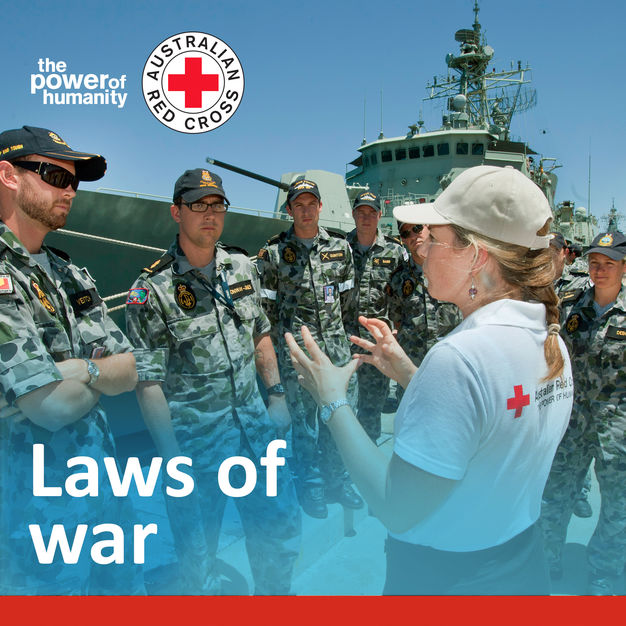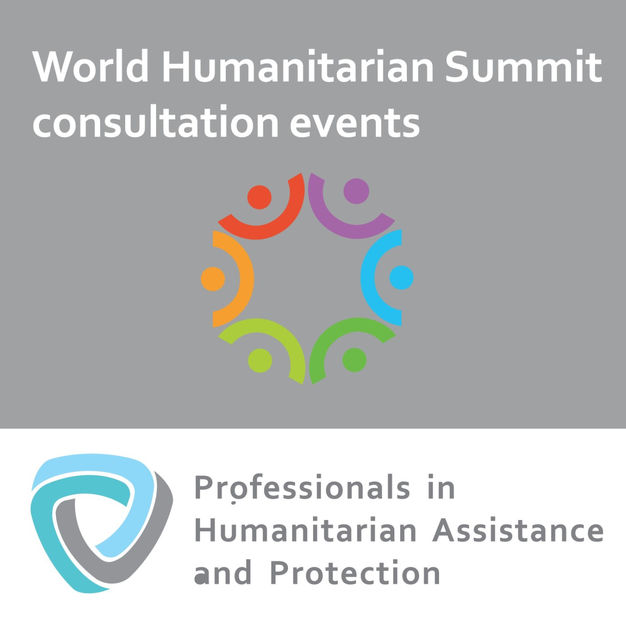
Humanitarian Innovation Conference 2015: Facilitating Innovation
The Humanitarian Innovation Conference 2015, #HIP2015, was hosted by the Humanitarian Innovation Project, in partnership with the World Humanitarian Summit, in Oxford on 17 and 18 July 2015. The theme of the conference was ‘facilitating innovation’. As interest and dialogue around humanitarian innovation continues to expand, conference participants were invited to explore the challenges of creating an enabling environment for humanitarian innovation. In the lead up to the World Humanitarian Summit 2016, a key focus of the conference explored how we enable innovation by and for affected communities. What does it mean to take a human-centred approach seriously, and to engage in co-creation with affected populations? It also sought to examine what facilitation means across the wider humanitarian ecosystem, and how we can better convene the collective talents of people within and across traditional and non-traditional humanitarian actors.
- 17 minutes 38 secondsIraq Re:Coded: Durable Skills, Education and Livelihoods through Innovation and Technology’ This presentation introduces ‘Iraq Re:CodeAli Clare (New York University) and Frederic Kastner (Fuse Foundation) give a talk for the Innovative Approaches to Education and Skills Training in Humanitarian Contexts panel. This presentation introduces ‘Iraq Re:Coded’, an innovative approach to skills training and livelihoods that provides sustainable access to 21st century market-orientated skills training and economic opportunities for refugee and displaced youth between the ages of 15 and 25 in the Kurdistan Region of Iraq (KRI). Innovative Approaches to Education & Skills Training in Humanitarian Contexts This panel discusses new approaches to provision of education and skills training for affected populations.2 December 2016, 2:12 pm
- 19 minutes 55 secondsThe Real Superheroes: Reflecting on the Challenges and Opportunities of Innovators in and of Higher Education spaces in Refugee CampsHeather Donald (York University) and Laura Stankiewicz (Harvard and Tufts Universities) give a talk for the Innovative Approaches to Education and Skills Training in Humanitarian Contexts panel. This presentation highlights how higher education programmes have been both driven by innovation from the top as well as spurred on innovation at the grassroots level within refugee camp communities, providing a framework for reflection on measured but collaborative innovation in and with camp communities. Innovative Approaches to Education and Skills Training in Humanitarian Contexts This panel discusses new approaches to provision of education and skills training for affected populations.2 December 2016, 2:09 pm
- 19 minutes 50 secondsRefugee Co-Instructors: How Residents of Nakivale Refugee Settlement in Uganda are Teaching Students at the University of Denver to Bridge the Gap between Policy and PracticeCourtney Welton-Mitchell (University of Denver), Chen Reis (University of Denver), and Frederic Kastner (Fuse Foundation) gives a talk for the Innovative Approaches to Education and Skills Training in Humanitarian Contexts Panel. This presentation highlights refugees as co-instructors, teaching students in a graduate level refugee studies course to understand the gap between aspirational policies and the reality of life in restrictive camp-like environments. Innovative Approaches to Education and Skills Training in Humanitarian Contexts This panel discusses new approaches to provision of education and skills training for affected populations.2 December 2016, 2:05 pm
- 14 minutes 51 secondsOperationalising empathy in refugee camp designNeysan Zölzer (Mensch) gives a talk for the Design in Humanitarian Innovation panel. This presentation proposes and examines a methodological shift in refugee camp design from the prescriptive and formulaic approaches of the UNHCR Handbook towards a principle-driven design approach that draws on empathy.2 December 2016, 1:48 pm
- 18 minutes 30 secondsExperiences with a threefold humanitarian innovation approachJochan Bader and Reihaneh Mozaffari, More than Shelters give a talk for the Design in Humanitarian Innovation panel. This presentation demonstrates how product design, social design and eco-system design for humanitarian innovation can be linked and facilitated as co-creation processes in the field, based on experiences with the Syrian crisis response in Jordan. Design in Humanitarian Innovation panel This panel considers the role and function of design in humanitarian innovation.2 December 2016, 1:45 pm
- 19 minutes 47 secondsThe impact of design for humanitarian action: examples from Design without Borders’ projectsAnjali Bhatnagar (Design without Borders), gives a talk for the Design in Humanitarian Innovation panel. This presentation seeks to demonstrate the importance of design for the humanitarian sector, drawing upon two Design without Borders’ projects to explore both solutions and key elements of the design process and to highlight how design tools are crucial to foster innovation.2 December 2016, 1:41 pm
- 18 minutes 43 secondsPrinciples for ethical humanitarian innovationAlexander Betts (Refugee Studies Centre, University of Oxford) gives a talk for the Considering Ethics in Humanitarian Innovation panel. This presentation explores the range of ethical questions and dilemmas related to humanitarian innovation (HI) and will offer a set of principles for ethical HI to review, based on discussions at workshop held in Oxford in April 2015.2 December 2016, 1:36 pm
- 14 minutes 47 secondsThe ethics of monetary incentives for refugee repatriationMollie Gerver (London School of Economics) gives a talk for the Considering Ethics in Humanitarian Innovation panel. This panel engages with several topics related to ethics and principles for humanitarian innovation. This presentation will consider not only whether monetary incentive payments themselves are unjust, but whether the UN and NGOs act unjustly when they facilitate such schemes, attempting to resolve two ethical dilemmas concerning such payments: the “Motivation Dilemma” and the “Freedom of Movement Dilemma.”2 December 2016, 1:29 pm
- 19 minutes 51 secondsEthics as a driver for humanitarian innovationsAnaïs Rességuier (Sciences Po Paris), gives a talk for the Ethics as a driver for humanitarian innovations panel. This panel engages with several topics related to ethics and principles for humanitarian innovation. ‘Ethics as a driver for humanitarian innovations’ This presentation considers the ethical aspirations of humanitarian endeavours as ‘the primary desire to help’, arguing that under this model ethics becomes a fundamental source for humanitarian innovation rather than only a way to regulate it.2 December 2016, 1:25 pm
- 23 minutes 14 secondsEnergy for the Displaced part threeMichael Keating and Glada Lahn (Chatham House) give a talk for the Energy for the Displaced panel. This panel discusses ways in which energy for the displaced might be delivered more sustainably, with a greater role for the private sector. Energy for the Displaced Humanitarian agencies lack the capacity to deliver sustainable and clean energy to refugees and displaced people. This means that hundreds of millions of dollars in donor and refugee money is spent each year on fuels that are burned in highly inefficient and often health-endangering ways. In the case of firewood - still the overwhelming fuel of choice in camps - women and children are at risk from both journeys outside the camp to collect it and inhalation of the smoke. With the developing world hosting the majority of refugees and displaced - and an increasing number living in urban areas - addressing energy needs also combines with complex national energy security and social integration issues. There is a growing range of safer, cleaner, more carbon-efficient methods available, whose cost savings over years would also help ease the burden on an overstretched humanitarian system. However, innovation in this area is inhibited by the system itself. This presentation will discuss ways in which energy might be delivered more sustainably, with a greater role for the private sector.2 December 2016, 12:34 pm
- 17 minutes 47 secondsEnergy for the Displaced part twoBen Good (GVEP International) gives a talk for the Energy for the Displaced panel. This panel discusses ways in which energy for the displaced might be delivered more sustainably, with a greater role for the private sector. Energy for the Displaced Humanitarian agencies lack the capacity to deliver sustainable and clean energy to refugees and displaced people. This means that hundreds of millions of dollars in donor and refugee money is spent each year on fuels that are burned in highly inefficient and often health-endangering ways. In the case of firewood - still the overwhelming fuel of choice in camps - women and children are at risk from both journeys outside the camp to collect it and inhalation of the smoke. With the developing world hosting the majority of refugees and displaced - and an increasing number living in urban areas - addressing energy needs also combines with complex national energy security and social integration issues. There is a growing range of safer, cleaner, more carbon-efficient methods available, whose cost savings over years would also help ease the burden on an overstretched humanitarian system. However, innovation in this area is inhibited by the system itself. This presentation will discuss ways in which energy might be delivered more sustainably, with a greater role for the private sector.2 December 2016, 12:30 pm
- More Episodes? Get the App
Your feedback is valuable to us. Should you encounter any bugs, glitches, lack of functionality or other problems, please email us on [email protected] or join Moon.FM Telegram Group where you can talk directly to the dev team who are happy to answer any queries.
 Laws of War
Laws of War
 PHAP: Learning sessions and webinars
PHAP: Learning sessions and webinars
 World Humanitarian Summit Consultations
World Humanitarian Summit Consultations
 ODI podcasts
ODI podcasts
 Harvard Humanitarian Podcast
Harvard Humanitarian Podcast